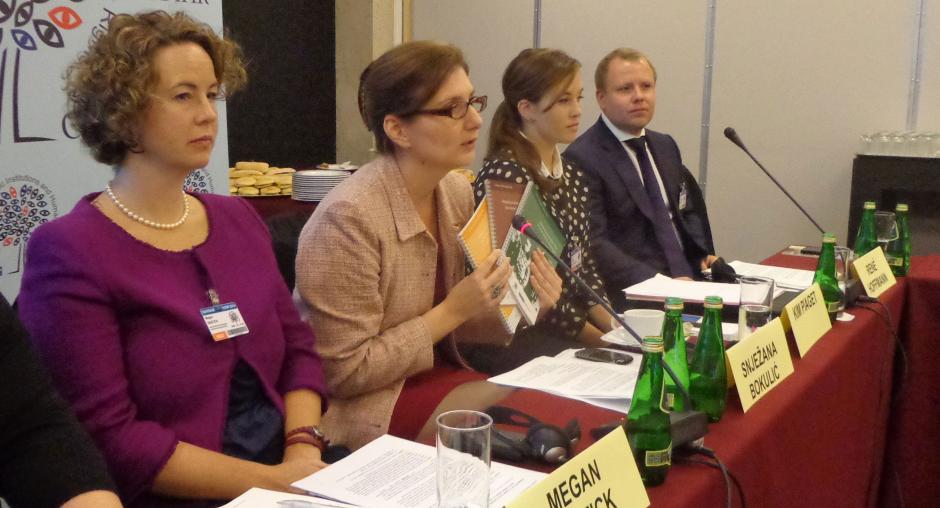Participants highlight increasing role of ombuds institutions in addressing grievances of security sector personnel at OSCE meeting in Warsaw

Ombuds institutions and national human rights institutions are playing an increasingly active role in investigating grievances of personnel in the security sector, said participants in a side event at the OSCE Human Dimension Implementation Meeting in Warsaw on 26 September 2014.
The side event was co-organized by the OSCE Office of Democratic Institutions and Human Rights (ODIHR) and the Geneva Centre for the Democratic Control of Armed Forces (DCAF), who are closely studying ombuds institutions and national human rights institutions and how to augment their capacity to address human rights violations and gender-related issues in security institutions.
“As part of this work, ODIHR and DCAF have produced the Guidance Notes on Gender in Security Sector Oversight, available in English and in Russian, which assist with better identifying and investigating gender based grievances arising within the security sector and in building sustainable response strategies for the future,” said Snježana Bokulić, Head of the ODIHR Human Rights Department.
Participants at the side event highlighted that, while men and women working in security institutions are subject to permissible limitations due to the nature of their jobs, they can still experience discrimination and other violations as do employees working in other fields. For example, they noted, women’s access to particular jobs or branches of service can be restricted or altogether denied.
“Until recently, a 15 per cent admission quota for women in the military and police academies of Serbia served as a ‘glass ceiling’, and no girls were allowed in the military high school,” said Kosana Beker, Assistant to the Commissioner for Protection of Equality of the Republic of Serbia. “Our office investigated and recommended that these rules be changed.”
This side event and the publication of the Guidance Notes are part of ODIHR’s on-going efforts to assist security actors and oversight bodies in integrating a human rights and gender perspective in their daily work.
